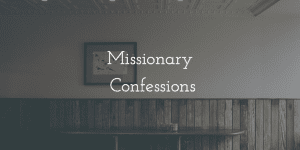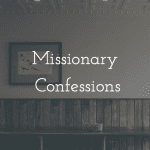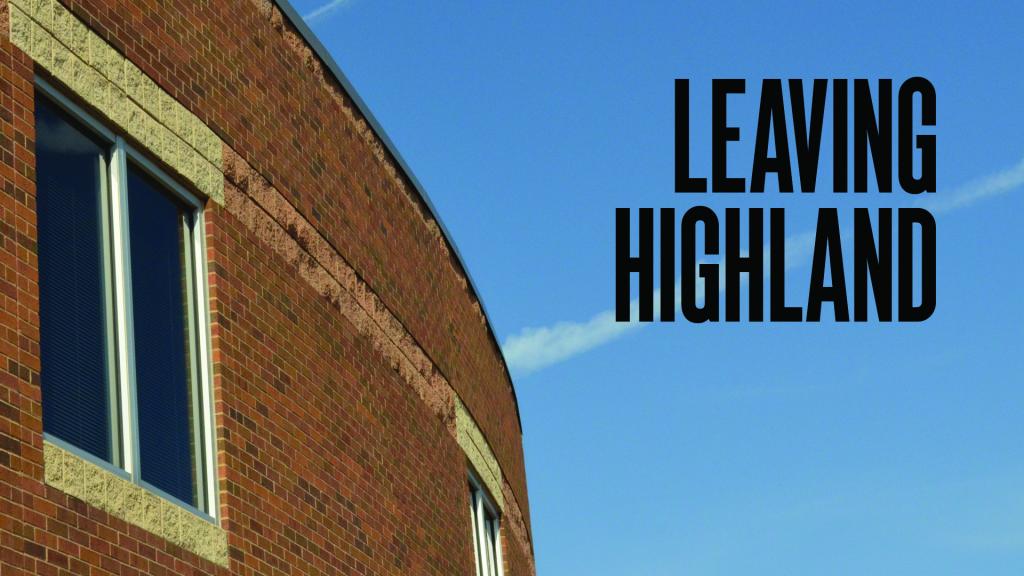
So, you know things are bad when you have spent the last few years living in a place tucked neatly between two bloody civil wars raging largely along racial and tribal lines, and you come back for a visit and find yourself gob-smacked by the racism in your own country.
I’m a white person, and a white person who has spent most of her life living outside of the United States, so perhaps I am ill-postured to have thoughtful input into conversations about race relations in America today. But as someone who has lived in racial and cultural diversity my whole life, who has struggles with what it means to be Westerner in a post-colonial world, who deeply loves people very different from myself, I will be the first to admit that racism is a sin that I cannot claim immunity to.
I confess that in different times and in different ways, I am a racist.
A few years ago my firstborn daughter got really sick. She was 18 months old and we had just moved to the refugee camp where we work in in North Africa. We sought the advice of an American doctor who worked at a clinic down the road and we treated her with medication we had brought in with us from the outside. But she didn’t get better. In fact, she got worse. So finally, we turned to our last resort and took her to the only hospital within hundreds of kilometers.
I grew up in Africa and am generally not easily panicked, but walking into the hospital I confess I almost lost it. The hall was dimly lit and heavy with the sickly-sweet fragrance of vomit, urine and iodine. Women lining the hallway floor were either cradling listless children or spoon feeding sorghum porridge to elderly men. Behind a frayed green cloth tacked over a door frame I glimpsed a room full of beds, each with two or three people curled in it. A baby cried somewhere and cats tiptoed along the half-walls of the porch. At every shallow inhale I felt like I could taste the malaria, dysentery and heartache that was thick in the room.
To this day I am not sure if what happened next was because I was a white woman, or because I was a (comparatively) very rich woman, or because I was friends with the doctor and his employer. But before I knew it, we were ushered right past all those other women with far sicker babies than my own, through a greasy looking door to a small room where the one doctor on call was in the middle of surgery on a little girl. He finished the surgery, removed his surgical mask, tossed his soiled gloves in a trash can and turned to treat my child.
Before every black person in that hospital, before every poor person, before every North African refugee, the child of the white American was given attention. And in my terrible fear in that moment, my relief was more acute than my shame.
I learned something that day I never want to forget. Even when I do not actively partake in the injustices committed against other people because of their skin color, religion, language, or socio-economic status, I cannot escape the truth that I am a part of something bigger than myself. There are lines I have been ushered to the front of that I didn’t even recognize. There is preference that I have been shown without even knowing it was being given. Twenty-four years in Africa has taught me that we are not individuals nearly as much as we would like to believe. Whether we recognize it or not, we are each a part of bigger narratives, systems and communities that shape us. And as participants in these stories, we have the responsibility of shaping them in return.
I have noticed when people talk about race in America, as they qualify, defend or nuance a statement they have just made about another group of people, they often say hurriedly “But of course I am not a racist.” The words have a panicky or combative quality to them, as though the merest hint of the alternative would be a devastating admission.
Which it would be. To be a racist is sinful and worthy of shame. But like so many sins…
It’s something we are all guilty of.
Different cultures rank sin differently from one to the next. For example, in North Africa slapping your wife around is generally not that big a deal. But if you refuse to show hospitality to a guest…well then, may God have mercy on your soul. In the States you might hear people talk about their struggle with fear or anger, that they want to stop being so judgmental. But open up your small group with a confession to your gluttony or great love of money and the room will get real quiet real fast.
I get the impression that racism falls into that last category for most of us. We have labeled it as one of the big bad sins but not just because it rightly deserves such scorn. In relegating it to a deep place we safely assume is far beyond the reach of all the petty sinfulness that we are content to splash around in from day to day, and we are no longer forced to confront the myriad of ways we participate in racism. If we uphold the idea that racism is a terrible thing, and we are generally not terrible people, then we are freed from the burden of wrestling out all the ways it is our sin too.
But that’s not how sin works. Sin does not have a rating or percentage value attached to it. As children of the light we are called to examine ourselves honestly and rid ourselves of everything that is not of God, no matter how uncomfortable or complex it may be. We must confront it and repent of it even if it is no longer a matter of how we treat people but how others are treated by the systems that we are blindly and intimately bound to.
I think John 9:41 is one of the most terrifying passages of scripture. In it we hear Jesus speaking to a bunch of church-folk who are confident that they have it all figured out and are more than a little annoyed at the ways Jesus keeps suggesting otherwise. While a blind man continually confesses he’s not always sure what is right and regains his sight, the church-people are confident that they know all the answers. And Jesus has this to say to them: “If you were blind, you wouldn’t be guilty, but you remain guilty because you claim you can see.”
Do those words make your blood run just a little cold the way they do mine? How many times have I claimed that I can see? Claimed that I know what I am and what I am not. That I know who others are and who they are not.
There are people in your life who are well acquainted with the experience of racism. There are people in your life who have good ideas about how to heal and move forward. Seek them out. Ask them questions. Do not be afraid to confess that maybe you do not know. And then listen.
If we can retain our repulsion for the sin of racism, while simultaneously recognizing that it is not a rare sin committed only by idiots who carry around Nazi flags, but a deeply rooted and complex thing that resides within us and the world we inhabit, we will be well-postured to begin healing out of that confession.
Let us not be afraid to claim our blindness. There is One who is able to heal and forgive and if we are willing, He will restore our sight.









